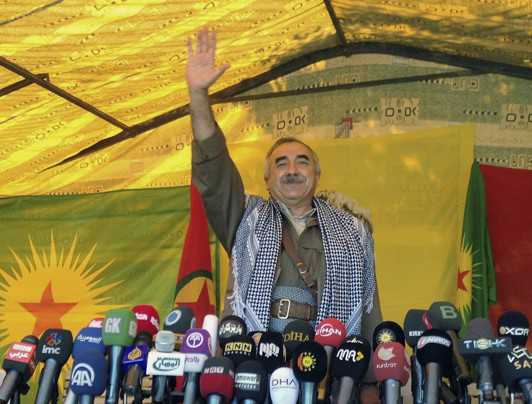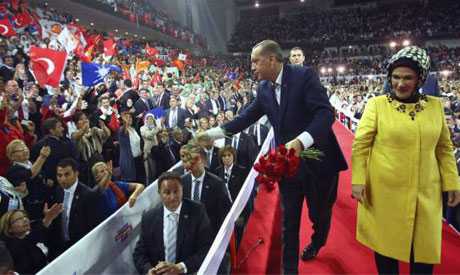Abdullah Ocalan’s call for a ceasefire with the Turkish state was unarguably something different. Throughout the three-decade-long conflict almost 45,000 people have lost their lives.
The message of the banned Kurdistan Workers’ Party (PKK) leader, held in his island prison of Imrali south of Istanbul since 1999, was watched by millions of people across the country on 21 March.
Analysts argue the situation is moving towards granting Kurds the right to self-governance, not full independence, due to a series of social and political concerns.
Why a ceasefire now?
Turkey welcomed Ocalan’s ceasefire call that came after months of talks between both sides.
The message by Ocalan did not specify a concrete roadmap for the implementation of the peace process.
Instead, Ocalan said it was time for “politics to prevail, not arms,” and called for his movement to engage in a “democratic model.”
“The 30-year-old war between Turkish troops and Kurdish rebels has come to a point of fatigue.The warring sides are tired, generally ripe for peace,” Yavuz Baydar, a columnist at the TurkishToday’s Zaman newspaper , told Ahram Online.
Baydar said the governing Islamist Justice and Development AK Party realises Ocalan enjoys huge popularity and authority over Kurds, so they have decided to talk to him.
Other reasons for the ceasefire’s timing are Turkey’s strong economic growth, and the popularity of Prime Minister and AK leader Recep Tayyip Erdogan.
In January, Turkish media reported the government and Ocalan had agreed on a roadmap to end the conflict.
Yet, at that time, the pro-Kurdish Peace and Democracy Party (BDP) urged the government to release Ocalan to freely take part in talks, describing them as “not at the stage of fully-fledged ceasefire talks.”
This was preceded by an earlier government statement revealing the intelligence services had for weeks been involved in talks with Ocalan to solve the dilemma of the Kurds, who represent around 15 million of the country’s 75-million population.
Alex Christie-Miller, the Istanbul-based correspondent of the Christian Science Monitor, said Erdogan had been speaking about resolving the Kurdish conflict for few years and the AK is less “ideologically” opposed to Kurdish demands.
“The basic reasons to settle the conflict are obvious: its cost in economic and human terms, and the fact that peace in the southeast will better allow Turkey to exploit its lucrative relationship with the Kurdish Regional Government, particularly in terms of oil contracts,” he said.
Christie-Miller added that the chaos in Syria has led to the empowerment of the Kurds near the border, which has jeopardised Turkey’s security situation. There are also growing signs of Iranian support for the PKK.
No full independence
Ocalan, 64, known as “Apo,” or uncle, is branded a “baby killer” by many Turks. According to AFP, a release bid prior to the ceasefire was refused by Ankara, leading to further unrest.
Since the Turkish military and Ocalan-led rebels took up arms in 1984, the Kurds have insisted on their right to self-rule in the Kurdish-majority southeast.
The failure of the latest round of government-Kurdish talks in 2012 was followed by PKK attacks against Turkish security forces in Ankara, killing three civilians and wounding 34 others.
Mohamed Abdelkader, Turkish affairs expert at the Al-Ahram Center for Political and Strategic Studies, argued that Kurdish independence would be totally “off the table.”
“Kurdish demands are mostly about winning cultural and political rights. The highest number of Kurds live in Turkish-majority, not Kurdish, cities,” Abdelkader noted.
“Kurds occupy top-level positions in all state institutions, including the military, and almost 2 million people come from mixed families.”
Erdogan, who took office in 2002, granted more cultural and language rights to the Kurdish community, but the latter kept calling for other demands such as the more political representation in the national assembly and an amnesty for PKK leaders.
Kurds back Erdogan for president?
Erdogan’s AK party have won three consecutive elections since 2002, ending a long history of weak governing coalitions usually interrupted by military coups.
Turkey’s political transformation has spread beyond our country’s borders and has become an example for all Muslim countries, he said at the AK party congress last September.
Erdogan stressed Turkey’s need to draft a new constitution to replace the one written after a military takeover in 1980, a process that is currently taking place.
Critics, however, accuse him seeking to create a presidential political system and take the president’s seat, since he cannot seek another term as premier at the 2015 poll.
William Armstrong, journalist at Turkey’s Hürriyet Daily News, claims Erdogan needs Kurdish support to amend constitutional articles that lack a national consensus, which might motivate AK negotiators to offers concessions in peace talks.
“The AK party already gets the support of the majority of Kurds, and it is important to remember that Ocalan has expressed potential support for Erdogan as the next president,” he emphasised.
People from diverse sides of the spectrum support Erdogan after his success in tripling per capita income and re-establishing Turkey as a regional power.
Even the West envisions the Turkish model as an acceptable balance between Islam and democracy for other Muslim states in the region.
“One can take two views. There is a sceptical line that suggests Erdogan is trying to strengthen his own position and gain support from the country’s sizeable Kurdish population,” James Ker-Lindsay, senior research fellow at the London School of Economics and Political Science (LSE), said.
“However, there are also good reasons to suggest that this is about a leader who has recognised that a political solution to a nasty, brutal conflict that has cost tens of thousands of lives is now needed.”
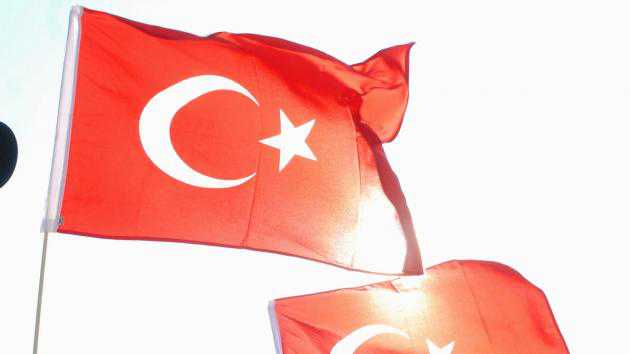


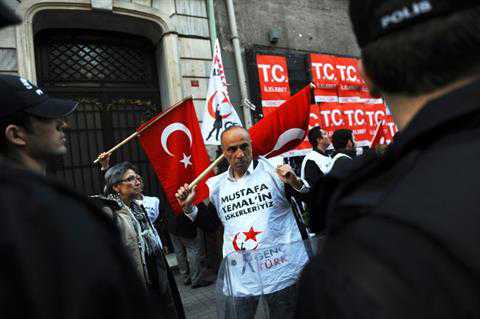
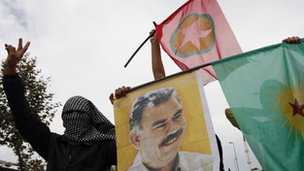
 Cagil KasapogluBBC Turkish
Cagil KasapogluBBC Turkish
